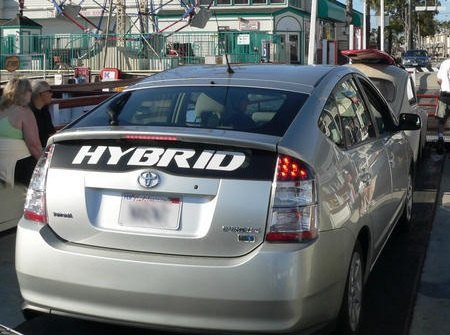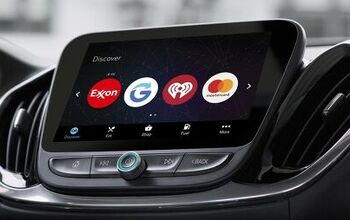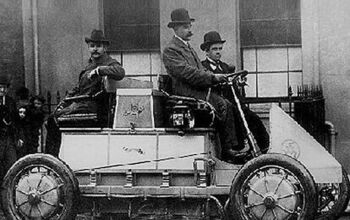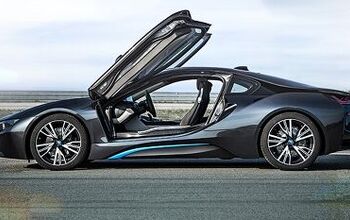No Surprise There: Hybrid Sales Up
New car sales in the U.S. are depressed (recessed?), but sales of hybrids are up. While accounting for only 2.2 percent of the total U.S. market share, CNN says "Hybrid cars [are] flying out of showrooms." Indeed. Industry sales of some 350k hybrids translated into a 38 percent jump in '07. Toyota's Prius captured 51 percent of the hybrid market. Although most analysts see rising gas prices as the main sales driver, CNN trots out a tree hugger to convince you that many if not most consumers are [still] buying Priora to make a statement: "My decision is a very political decision," asserts Kim Fenske. "I want to get people in this country off their dependency on foreign oil." Anyway, R.L. Polk industry analyst Lonnie Miller figures hybrid sales increased because buyers have more non-goofy-looking options. "It's a good call on automakers' parts to not make their hybrids so funky and out of body style than what's already out there." Yes, well, Miller says 2008 hybrid sales should increase by 30 percent or more. "I can't see the hybrid category totally chilling out." Dude.
Glenn is a baby-boomer, born in 1954. Along with his wife, he makes his home in Connecticut. Employed in the public sector as an Information Tedchnology Specialist, Glenn has long been a car fan. Past rides have included heavy iron such as a 1967 GTO, to a V8 T-Bird. In between those high-horsepower cars, he's owned a pair of BMW 320i's. Now, with a daily commute of 40 miles, his concession to MPG dictates the ownership of a 2006 Honda Civic coupe which, while fun to drive, is a modest car for a pistonhead. As an avid reader, Glenn enjoys TTAC, along with many other auto-realated sites, and the occasional good book. As an avid electronic junkie, Glenn holds an Advanced Class amateur ("ham") radio license, and is into many things electronic. From a satellite radio and portable GPS unit in the cars, to a modest home theater system and radio-intercom in his home, if it's run by the movement of electrons, he's interested. :-)
More by Glenn Swanson


































Comments
Join the conversation
Explain to me again why diesel went up so quickly just as diesel cars were ready to make a big debut in America? Same number of trucks right? Same number of trains right? Same number of busses right? Same number of big ships right? The higher price implies increased demand or decreased production or a combination of both. Which is it?
How far ahead in the future do you think the auto manufacturers' analysts can accurately predict the price of various commodities? Maybe Toyota sees further into the future or maybe they start their product development earlier than car comapnies like GM? I'd have to think that a multi-billion dollar company has some of the best paid analysts in the world working for them either directly or buying some really good futures reports. I mean we might be shocked that we are seeing a 10 cent rise in gas (like last night here in TN) or $3.43 gasoline but maybe the people at the top have a pretty good idea of what things will cost 5 years down the road meaning a good leader will start planning products now while a poor business leader waits until the last second.
About diesel - When we switched to cleaner diesel regulations, our refining capacity actually went down. Diesel is thus in short supply, and it takes time to make new refining capacity. The first new refining projects in decades have now begun as a result of the demand. Regulation and NIMBYism kept the desire to increase or even maintain refining capacity artificially low over the last couple decades. Hobo, If you penalize cars over the target, it's not really helping. What happens is that you create a disincentive to replace older vehicles. It's not easy with some taxes to modify behavior because a registration tax does not necessarily reduce consumption, but can actually decrease it. The carrot is linked, but the stick is not. Understand?